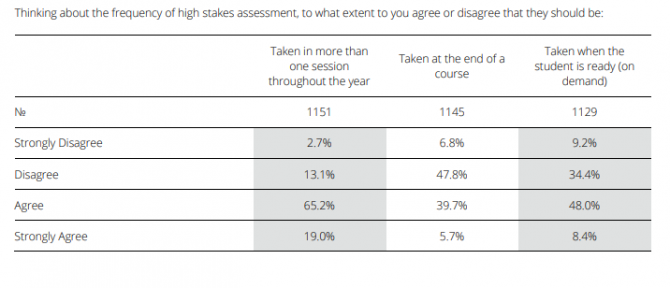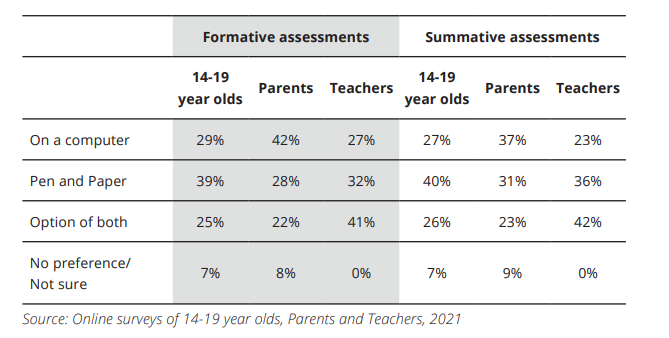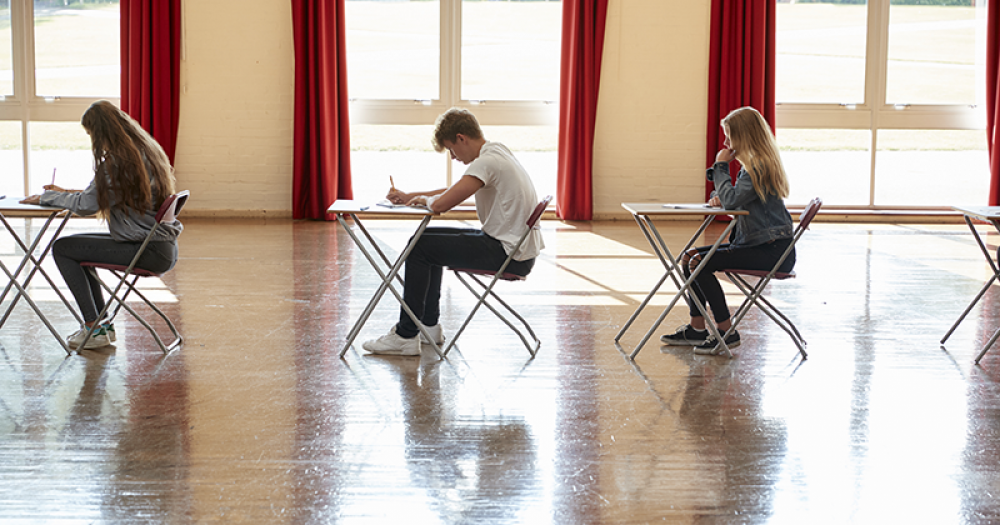Eight of out ten teachers believe high stakes exams should be taken throughout the year, and most want more autonomy over testing, an exam board survey has revealed.
Pearson has published initial findings from its review into the future of qualifications and assessment in the UK.
The company surveyed 5,000 people, including students, parents and around 1,100 teachers. It also polled 104 MPs and interviewed expert panel members, including three former education secretaries.
The exam board said its consultation “did not find evidence of a strong desire” to remove GCSEs or replace our current assessment system with an entirely new one.
It is the first stage in the review, with a final report and recommendations expected by the end of this year.
Here’s are some of the key findings from the survey.
1. Testing should be done ‘throughout the year’
Asked about the frequency of high stakes assessment, 84 per cent of teachers said they should be taken in more than one session throughout the year. More than half – 54 per cent – said they should not be taken at the end of the course.
Opinion was split on whether tests should happen on demand when students are ready, with 56 per cent agreeing and 43 per cent saying they disagreed.

Pearson said most of its expert panel members “cautiously welcomed” the idea of a return to some form of continuous assessment, but were “mindful of the reasons why continuous assessment was removed from general qualifications following the 2012 reforms”.
The government began to phase out modular GCSEs from 2012. New linear exams require pupils to sit all the tests at the end of the course.
2. Teachers want ‘more responsibility’
Seventy-eight per cent of teachers surveyed agreed or strongly agreed that they should be given “more responsibility and autonomy” over student summative assessment.
Pearson said teachers generally felt all assessment types were effective, but with a “strong preference” for more regular assessment through the year, marked by them.
Asked about the effectiveness of different assessment approaches at “validating the acquisition of knowledge and skills” in 14 to 19 year olds, 61 per cent said end of term or year tests marked by a teacher were “very effective”.
Only 32 per cent of teachers said final high stakes exams were “very” effective.
3. Subjects ‘restricted’ by funding and accountability
A majority of teachers surveyed – 65 per cent – said they felt the choice of qualifications on offer at their school or college was “restricted by funding and accountability pressures”, while 22 per cent disagreed.
Asked to what extent high-stakes assessments should be used to judge schools on their performance, 77 per cent said “some extent”, 17 per cent said “no extent”, while 5 per cent thought it should be a “great extent”.
4. Teachers favour ‘option of both’ paper and computer tests
Respondents were asked which format they would prefer formative and summative assessments to take.
More than four in ten teachers said they would prefer the “option of both” computer and pen and paper tests for formative and summative assessments, depending on the subject. Thirty-six per cent said they preferred pen and paper for summative assessments, while 32 per cent preferred that option for formative assessments.
When key stage 4 and 5 pupils were asked the same question, 40 per cent said they would prefer to use pen and paper and 27 per cent would prefer to use a computer for summative tests, while 26 per cent favoured having an option of both.

Nearly all teachers – 95 per cent – believed they needed more regular technology training for teaching and assessment to increase their confidence.








I think exams at the end of the course.puta undue stress and has a detrimental effect on young people’s Mental Health more regular assessment throughout the duration of the course reduces stress añd gives a better all round representation of young people’s abilities.
Who did Pearson survey because they’re idea of high stakes testing is the biggest waste of time and money in education.
this idea, I hate auto correct almost as much as these time wasting tests.